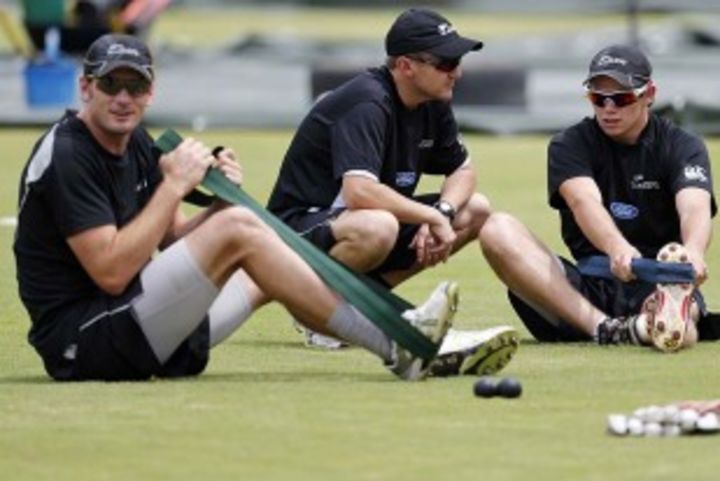The Hesson manual
Or, the secret of how to sack a player efficiently mid-tour

What's the secret of good management? The ability to sack 23 people by text whilst perusing the wine list on your executive jet? Being fluent in all the key languages of the modern business world from Jargonese to Gibberish? A wardrobe full of sharp ties? A really convincing cross face?
No. It's communication. The ability to get your message across first time without having to follow it up two days later with an email clarifying what it was you thought you'd said and how it differed from what other people thought you'd said and how you hoped everyone could now move on from the whole sorry business.
Bad communication has been the downfall of many a cunning plan. During the Crimean War, a perfectly sensible order (ride as fast you can towards those Russian guns) was let down by the failure to specify precisely which guns. At the battle of Waterloo, Marshall Grouchy mistook Napoleon's command: "Don't let the Prussians out of your sight" for "Don't forget to pick up some Camembert tonight." When Grouchy returned with the cheese and a cheeky little Beaujolais he'd come across at a wine merchant's in Wavre, he found the battle was over and so were his chances of that big promotion.
So, in appointing their new coach this summer, New Zealand Cricket were taking no chances. After a rigorous selection process, during which candidates were invited to talk for two minutes on the subject of "Devising Paradigms Of Performance Excellence" without deviation, hesitation, repetition or common sense, Mike Hesson got the gig.
Hesson is known in the business as an ace communicator. In his final year at Cricket Coaching School, he scooped both the David Lloyd Medal for Post-Match Media Relations and the Ray Illingworth Award for Motivational Communication.
Since dropping players is a key part of the job description for any New Zealand coach, one of Hesson's first acts was to publish a pamphlet entitled "How to Handle Difficult Conversations with Sportsmen." For the benefit of those of you who might one day find yourself having to sack a captain mid-tour, the key points are reproduced below:
1. It is important to remember at all times not to be too specific. This will enable you to pretend later that the whole thing was a figment of the player's imagination.
2. In order to avoid focusing on distressing detail, steer the conversation towards the shortcomings of the person you are talking to. Once they understand that they are basically a failure as a human being, they are far more likely to accept bad news.
3. Try to end on a light-hearted note. An impersonation of the player's accent, or a bit of jovial name-calling can defuse a tense situation and leave everyone with a smile on their face.
4. If, a few days later, it transpires that you've got things wrong, deny everything and suggest that the player concerned has issues, possibly of a psychotic nature.
5. Remember, it's not what you don't say, it's the way that you don't say it that counts.
Andrew Hughes is a writer currently based in England
Read in App
Elevate your reading experience on ESPNcricinfo App.